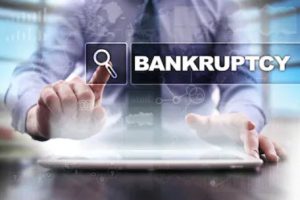Breaking Down a Chapter 13 Bankruptcy in Indiana

Mostly because of the coronavirus pandemic, the mortgage delinquency rate in Indiana recently hit a forty-year high. Legally, banks can initiate the foreclosure process after one missed payment. The first step in this process is usually an acceleration notice, which means the bank stops accepting partial payments. Therefore, the homeowner’s financial hole gets deeper every month.
Chapter 13 ends this downward spiral and gives your family a fresh start. That kind of debt relief is unavailable anywhere else. So, if you are dealing with past-due mortgage payments or a similar crisis, you can either hope the situation improves, or you can do something to take control of it yourself.
The Automatic Stay
Section 362 of the Bankruptcy Code normally takes full effect the moment debtors file their voluntary petitions. The Automatic Stay is a key to the aforementioned fresh start. The Stay halts creditor adverse action, such as:
- Foreclosure,
- Wage garnishment,
- Repossession,
- Collection lawsuits, and
- Harassing phone calls.
Moneylenders can only bypass the Stay if the judge grants special permission. That usually does not happen unless the debtor threatens the collateral in some credible way (e.g. “I’m going to burn the house down”). Payment delinquency is normally irrelevant.
Generally, the Automatic Stay remains in effect until the judge closes the bankruptcy. As outlined below, when that time comes, there is no more debt delinquency, so there is no more need to fear adverse action.
The Protected Repayment Period
Normally, this part of a Chapter 13 lasts either three or five years. Some debtors erase debt delinquency faster, so they emerge from bankruptcy faster.
At the 341 meeting, which usually occurs about six weeks after the bankruptcy is filed, the trustee (person who oversees the bankruptcy for the judge) normally approves an income-based debt consolidation payment. Each month, the debtor’s disposable income is divided among secured creditors. As long as the repayment amount eases debt delinquency before the bankruptcy ends, creditors normally cannot successfully object to the plan. They must wait for their money like everyone else.
If the debtor’s financial circumstances change and the debt consolidation payment becomes a problem, an attorney can either file a motion to reduce the payment amount or convert the case to a Chapter 7. That conversion means no more payments and a near-instantaneous fresh start.
Chapter 13 and Unsecured Debts
In addition to secured debts, many people struggle with high credit card balances and other unsecured debts. In this area, Chapter 13 gives debtors the option of repayment or discharge.
Many debtors are able to erase unsecured debt delinquency within the protected repayment period. “Discharge” means the judge eliminates the legal requirement to repay the unsecured debt. Some of these obligations, like back taxes and student loans, are only dischargeable in limited situations.
Reach Out to Hard-Working Lawyers
Chapter 13 gives your family a fresh start. For a free consultation with an experienced Chicago bankruptcy attorney, contact the Bentz Holguin Law Firm, LLC. We routinely handle matters in Indiana and Illinois.
Resource:
mba.org/2020-press-releases/august/mortgage-delinquencies-spike-in-the-second-quarter-of-2020
https://bentzholguinlaw.com/top-five-bankruptcy-exemptions-in-illinois/


